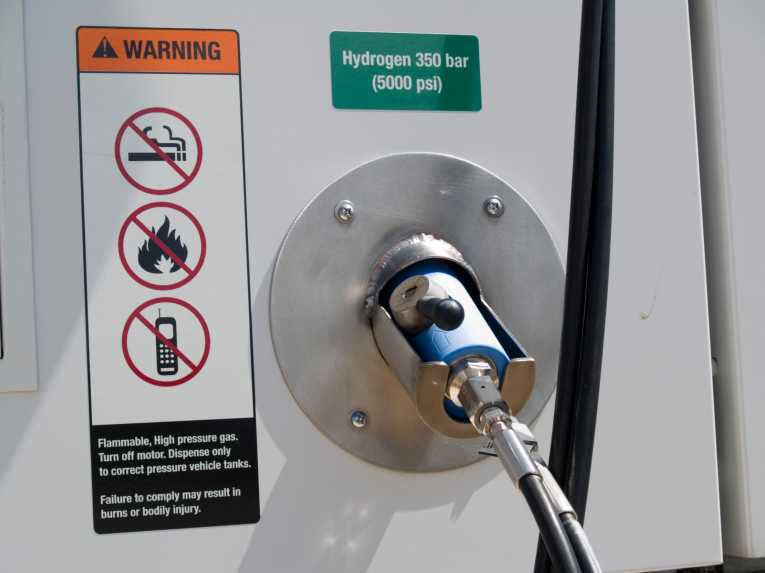Platinum has been the king of the catalysts, for the making of electricity in hydrogen-powered fuel-cells, for many years. But although the perfect material for the best fuel-cell performance, its very high cost has helped keep the 'hydrogen economy' as a renewables 'also-ran'. That may be about to change, if news on a innovative catalyst in today's Science pans out. It is as efficient as platinum, but it is also on the decidedly cheap side.
Developed by a Los Alamos National Laboratory research team, this advance towards a more practical hydrogen fuel-cell technology is long awaited. The 'hydrogen economy' has been touted for many years, offering a tantalizing promise of endless energy from nothing more than hydrogen and oxygen. And hydrogen fuel-cells only emit relatively harmless water vapor - no greenhouse gases here.
Many research teams have sought to replace platinum as a catalyst - but the main problem has been finding a replacement that will perform as well to the same standards. It is valued for its ability to produce very little waste hydrogen peroxide gas, as well as excellent power output and a long-lasting performance, even after many cycles of energy generation.
In order to match that demanding shopping list of properties, the team put together a catalyst made up of inexpensive carbon, iron and cobalt. The carbon was specially prepared in a high temperature process from polyaniline, a high-conducting polymer. The resulting carbon-iron-cobalt catalyst was then put through the mills, to see how it compared with its high-cost competitor.
The results are encouraging. It produces power to a similar level, and efficiency, as platinum, and also creates only very small amounts of hydrogen peroxide. That's important, because this waste gas can cause damage to the fuel-cell's membrane, and so wreck the fuel-cell. Add to that an impressive ability to stand up to repeated charging, and you can see why the team are now looking to patent their new catalyst.
Piotr Zelenay, a co-author of the paper, was positive, saying that ''For all intents and purposes, this is a zero-cost catalyst in comparison to platinum, so it directly addresses one of the main barriers to hydrogen fuel cells.''
But other barriers remain - with the safe storage of explosive hydrogen; as well as with finding the most ecologically sound way to extract the hydrogen fuel. Whether the planet can wait for all of the pieces of the hydrogen puzzle to fall into place is a another question entirely.










